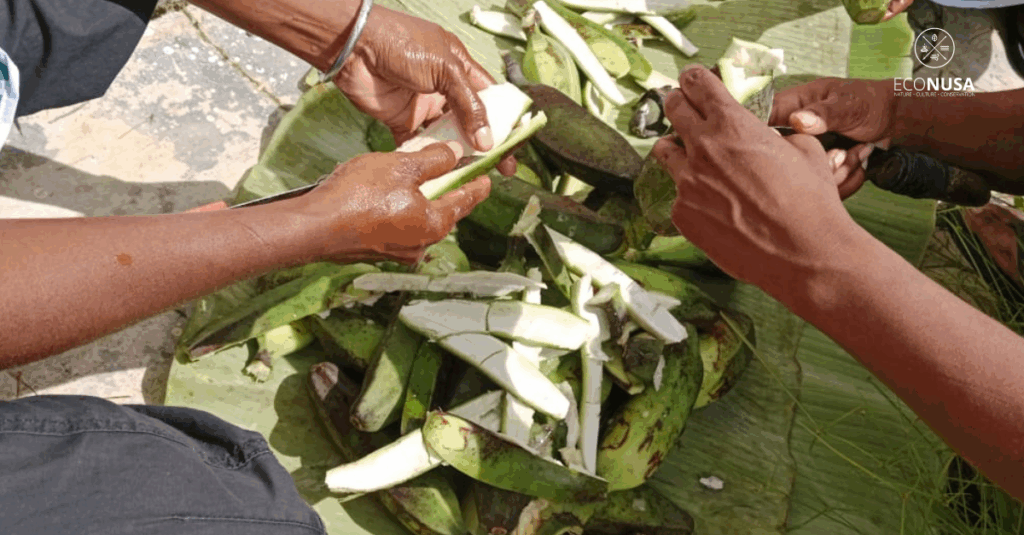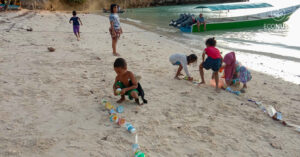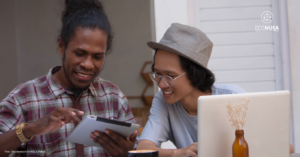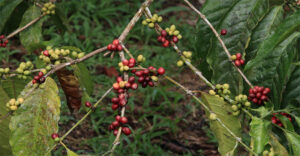
For the Tehit Mlaqya community living in Wersar Tapiri Village, Teminabuan District, South Sorong, the forest is not merely a collection of trees—it is a living space that holds history, provides food, and embodies their cultural identity. Protecting the forest means protecting themselves, their children and grandchildren, and the ecological balance that sustains their lives.
Within the forest, they cultivate gardens filled with various food crops such as taro, cassava, and bananas. Their gardens form part of a sustainably managed agroforestry system. The tubers and fruits harvested from these plants serve as staple foods for the community.
Harnessing the Potential of Bananas
Bananas have long been part of daily life. The community boils or fries them for meals and snacks. They also sell bananas in local markets for Rp10,000–15,000 per bunch. However, due to oversupply, much of the harvest often remains unsold, piling up on market tables until it spoils. As a result, families frequently leave ripe bananas unharvested—allowing them to ripen on the tree, fall to the ground, and rot unused.
Related Article: Restorative Economy: A New Path for Papua Toward Self-Reliance and Ecological Justice
While conducting village mapping with the community, EcoNusa team saw bananas as a commodity with untapped value that could help increase household income. This is especially important because the area inhabited by the Tehit Mlaqya people is a former oil palm concession. The community rejected the company’s presence, as their forest is their source of livelihood. By increasing the value of bananas, they hoped to protect their forest while improving their economic well-being.
Processing Banana Chips
EcoNusa introduced banana chip processing training. The women of Tehit Mlaqya—affectionately called mama-mama Mlaqya—listened attentively and began producing banana chips. With simple tools—sharp knives, large pans, and basic stoves—they sliced bananas thinly, fried them until golden, and sprinkled a touch of salt. The result: crispy, savory chips.
At first, the chips were made only for household consumption or sold in small quantities at the village market. There was no brand, no label, the packaging was simple, and the price was modest—but the income helped cover daily needs.
Seeing their enthusiasm, EcoNusa provided advanced training to improve quality. The women learned about maintaining consistent taste and texture, creating better packaging, and introducing their products outside the village.
The women later chose a brand for their banana chips: Mlaqya, named after their sub-tribe. Mlaqya means “hill” or “small fortress.” They also agreed to establish a Social Forestry Business Group (KUPS) under the same name. KUPS Mlaqya now focuses on developing banana-based products in their village. To the mama-mama Mlaqya, their banana chips are a “small fortress” protecting their forest and sustaining their livelihoods.
Related Article: Economic Potential of Matara Village: Between Coconuts, the Sea, and Customary Traditions

In addition to being sold locally, Mlaqya banana chips have been showcased by EcoNusa at local events. The women were proud to see their products displayed alongside others. Their confidence grew even more when EcoNusa brought the chips to various exhibitions, meetings, and economic forums. The community came to believe that forest conservation can go hand in hand with economic improvement.
Youth Participation
During production days, the women work together in a spirit of mutual cooperation. The group kitchen is not just a workspace—it is a place where bonds are strengthened. They divide tasks: peeling bananas, slicing them thinly, frying them, and preparing the packaging. Laughter, light conversations, and songs often fill the air. The kitchen becomes not only a cooking space but a social space where relationships are deepened.
Young people have begun to join as well. They learn how to slice bananas uniformly, maintain proper oil temperature, and arrange the packaging neatly. Without realizing it, the kitchen has become a small school where values of solidarity, hard work, and cultural pride are passed on to the next generation.
Business Mentoring
Beyond training in banana chip processing, EcoNusa also provides business mentoring. The women of Mlaqya are learning how to develop simple business plans, record income and expenses, calculate production costs, and determine fair selling prices.
“Now we know exactly how much profit we make—not just guessing,” one woman said proudly.
The banana chip business has become a small economic “fortress,” helping ensure that the community is not easily tempted by destructive activities that promise quick cash. Through this enterprise, the women earn additional income that can be saved for their children’s education. Daily needs are met without sacrificing their ancestral forests.




